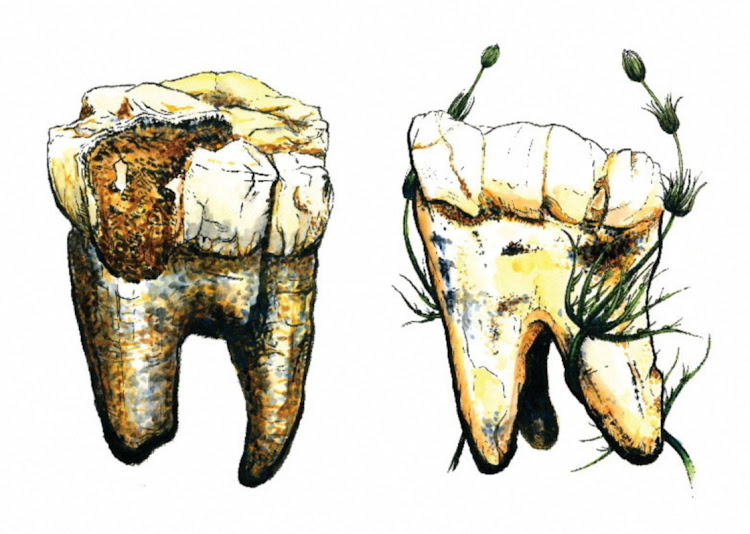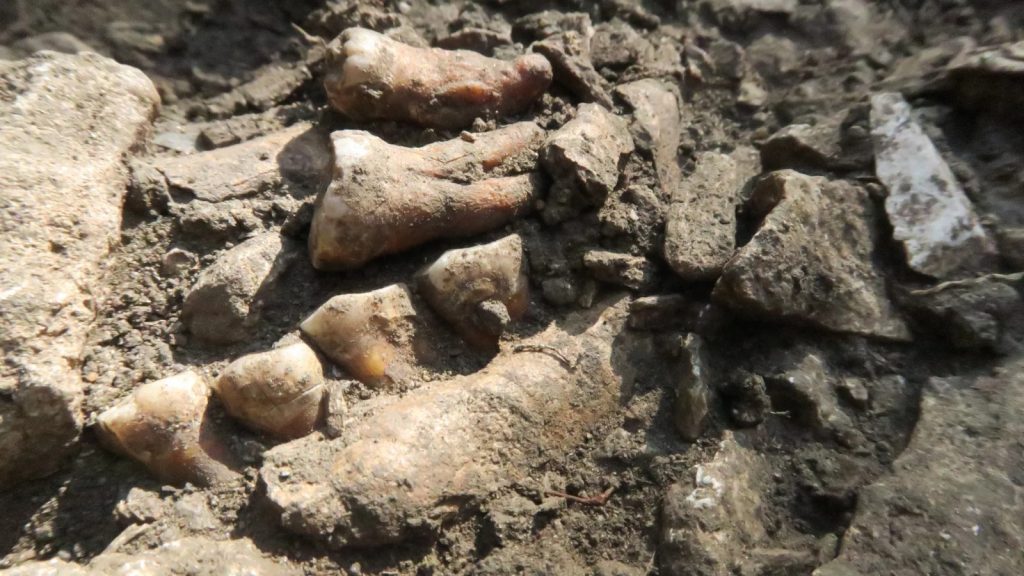The woman had six fingers on her left hand, a characteristic that in ancient cultures was often interpreted as a sign of distinction and spiritual authority. By JERUSALEM POST STAFF FEBRUARY 6, 2025 09:20 Excavation near Jerusalem finds 9,000-years-old six-fingered Neolithic shaman woman. (photo credit: Israel Antiquities Authority) A recent study published in the journal Atiqot described a tomb found at the Motza archaeological site in the hills of Jerusalem, dating back to the Pre-Pottery Neolithic B period. The excavations at Motza, conducted between 2018 and 2020, uncovered one of the largest concentrations of settlements from this period in the area. The research was carried out before the construction of Highway 16, the third access road to Jerusalem from the west. The tomb contained the remains of a woman who
Tag Archives: Archaeology
The incorporation of meat into the diet was a milestone for the human evolutionary lineage, a potential catalyst for advances such as increased brain size. But scientists have struggled to determine when meat consumption began and who did it. New research provides the first direct evidence that Australopithecus, an important early human ancestor that displayed a mix of ape-like and human-like traits, consumed very little or no meat, relying on a plant-based diet. The study determined the diet of seven Australopithecus individuals from South Africa dating to between 3.7- and 3.3-million years ago based on the chemistry of their tooth enamel. “Meat likely played a significant role in the expansion of cranial capacity — larger brain development — during human evolution. Animal resources provide a highly concentrated source of calories
A newly analyzed DNA sequence from a Neanderthal specimen, nicknamed “Thorin,” reveals an isolated lineage that persisted for 50,000 years, according to a study published in the journal Cell Genomics. Thorin, discovered in 2015 at the Grotte Mandrin rock shelter in the Rhône River valley of southern France, is believed to have lived as recently […]



